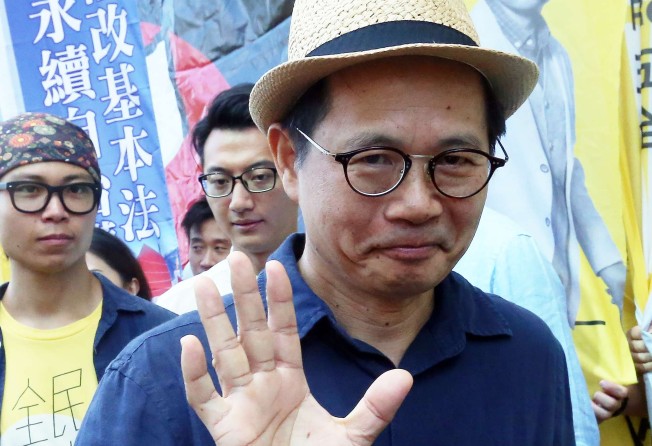Horace Chin, ‘father of localism’, draws red line against secession
The key issue is whether Hong Kong, as a special administrative region, should be viewed as something like Shenzhen or Macau, or more like Singapore

“The independence movement is the common enemy of all Hong Kong people.”
You would never guess who wrote it – Horace Chin Wan-kan, who is often called the father of localism. He especially singled out Chan Ho-tin, founder of the Hong Kong National Party, and Edward Leung Tin-kei of Hong Kong Indigenous, in an article in the Chinese-language, anti-government website Stand News this week.
I can’t believe it, but Chin actually offers a subtle analysis of why those who advocate independence have brought untold damage to Hong Kong.
His argument, if I understand him correctly, is that secessionists like Chan essentially make Hong Kong people out to be a separate ethnic entity from the rest of China. By turning Hongkongers into a bona fide ethnic minority fighting for independence or self-determination, they are practically inviting the central government to intervene.
They also encourage patriotic mainlanders to hate or at least suspect Hong Kong people who might think they are not part of the Han race. In his previous writings, Chin has argued that a fully democratic China would produce even more patriotic mainland Chinese bent on taking an imperialistic stance over Hong Kong.
In Stand News, Chin writes that the successes of local independence advocates in district and Legislative Council elections in the past year have actually damaged the cause of Hong Kong’s freedom and autonomy. You can say that again, Chin. You are absolutely right.
In his own defence, he writes that his brand of Hong Kong’s autonomy has nothing to do with race or ethnicity, but is rooted in the constitutional principles enshrined in the Sino-British Joint Declaration and the Basic Law.
In his books, Chin has often characterised Hong Kong as an autonomous city state. And of course, the city does, in many ways, function like one. We impose our own law and taxes, print our own money, control our own borders and have our own representation in many transnational bodies like the World Health Organisation and the International Olympic Committee.
This has given some people the illusion that we can attain full or nearly full sovereignty.
The key issue is whether Hong Kong, as a special administrative region, should be viewed as something like Shenzhen or Macau, or more like Singapore. Once you accept Hong Kong is an inalienable part of China, the answer is clear.